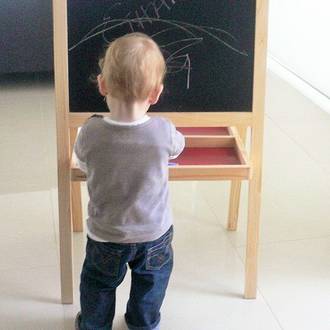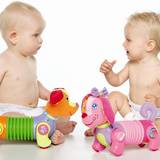Shop
01221
https://www.under5s.co.nz/shop/Hot+Topics+Articles/Child+Development/Early+childhood+education+options.html
Early childhood education options
|
There are lots of options to choose from when it comes to Early Childhood Education (ECE) throughout New Zealand, from teacher-lead to parent-lead centres, to home-based care and more. Read up on what options are available and decide what’s best for your little one.
|
You might also be interested in ...
The plus side of play dates
Are play dates really necessary when kids are young? We take a look at some of the benefits and developmental effects play dates can have on older babies, toddlers and pre-school kids when they catch up with their friends.
Toddlers who bite
Biting amongst toddlers is not uncommon. In most cases it’s just a phase they go through. We take a look at why toddlers bite and ways to help eliminate their biting altogether.
join usJoin us on social media for all our latest news. |
sign upSign up and receive our latest newsletters. |
|







Read up on what options are available and decide what’s best for your little one.
Benefits of early childhood education
Research shows that children who are involved in quality early childhood education benefit in many ways, and that these benefits also extend to their family and the wider community.
Taking part in ECE builds a strong foundation for your child’s ongoing education, learning and development. Children learn lots of new skills and build on the skills they learn at home.
In New Zealand there is a wide range of ECE services catering for your child’s needs and the requirements of each family. Each service works differently depending on the type of service you choose.
Types of ECE Services
There are two main types of early childhood education services to choose from:
The way in which these services operate may vary too from centre to centre, including:
Daycare
Home-based care
Kindergarten
Playcentre
Kohanga Reo
Montessori
Correspondence
Rudolf Steiner/Waldorf
PAFT
Choosing an ECE Service
When considering an early childhood education service for your child, it’s important to think about what will work best for you both, including:
1. What will suit yours and your child’s needs.
2. The type of service you want for your child ie teacher-led or parent-led; home-based or run by a private provider.
3. How many days/hours a week your child will attend.
4. The cost and affordability of using an ECE service, with or without the 20 hours free ECE subsidy.
5. The location of the service in terms of where you live or work, and ease of drop off and pick up each day.
6. Whether you would like to attend the service with your child, or not.
7. Whether the opening hours of the ECE service will work in with your other commitments.
8. The type of structure, discipline and playtime available.
9. Whether mealtimes, snacks, nappies etc are included in the daily/weekly fees.
Find out more
It’s an important decision to make, but every licensed ECE service is reviewed regularly by the Education Review board, giving you an independent view of the quality of each centre, along with its strengths and weaknesses.A free online report is available at www.ero.govt.nz.
The Ministry of Education website is also a wealth of information on early learning, how ECE works, the benefits of ECE, choosing an ECE service, assistance for parents and more.
Check out our other Hot Topics on: